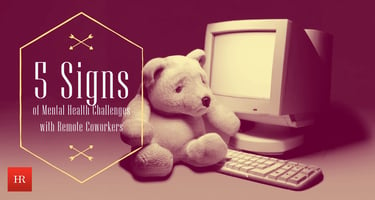Remember your first "big boy" or "big girl" job? Do you remember how excited you were the night...
Destination Unknown
I can recall sitting in my freshman year psychology class at St. Joseph's University ("The Hawk Will Never Die") in Philadelphia and realizing that I may have chosen the wrong major. It wasn't that I couldn't do the work (although, my professor had a different aesthetic than I when it came to writing), but rather I didn't really want to do the work. What I thought I'd be passionate about turned out to not be the case. And then I was left with that mild panic of: "Oh no, now what will I do when I get out of here?"
When you don't know where you are going, a few key responses kick in. Sometimes you'll get all of them or perhaps just one or two. For starters, fear grips. Fear of mockery by peers who seem to have their lives together and have a path to travel. Fear of another bad move when considering what's next. If judgement displayed didn't send you down a right path, how do you know if you'll decide better next time? Fear of failing in life. The lack of direction is unsettling and causes all sorts of possibilities, usually not good, to travel through your mind.
And then, get ready for some anger, frustration or numbness to settle in. There will be a reaction.
Now, think of it collectively. What if your organization has to change direction? What if the path that everyone thought they were to travel down has now been detoured elsewhere? What if employees think that the company's destination is unknown? Over the past five years, many companies did not know where they were going or could be going in light of the economy. Many workers found themselves without direction after some of those companies closed or had a major RIF. Employees who put 15-25 years in an organization left with nothing except fear, panic and guilt.
Let's think of this as HR professionals (I know, some of us have to put on some major thinking caps for this one). What can we do to display clarity of direction even when, at times, that may be difficult to do?
First, know the mission. Trite, perhaps. Crucial, always. I still walk into companies and ask the executive team what the corporate mission is, and the times that multiple answers are returned from multiple people is mind-blowing. If the C-suite doesn't show solidarity and consistency in what the goals are or purpose is, then it should come as no shock that employees would be concerned about direction. Be the cheerleader for why everyone is there. If it's to make the best widgets in the world, then get to shouting it from the rooftops. No doubt should live in the mission.
Secondly, design processes and programs consistent with a message concerning direction. Look back at the training done, the performance reviews completed and the succession plans in place. How much of that dealt with the core mission of the organization? If you find yourself saying, "well, sort of" a lot, then that is a problem. There ought to be clearly drawn lines to the main direction of the company. Having great health insurance plans for employees, for example, is great; however, the reason for those plans is not to be nice (sorry to burst bubbles here). The goal is to attract and retain talent that can perform the tasks and functions that need to happen in order for the company to be successful...bottom line. When HR makes it too much about the peripheral and not about the core, we invalidate our business sense and reduce our voice within leadership.
Third, be bold in advertising the destination points. "Where are we going? Well, right here!" And then point to where we're going. We hang legally compliant posters at our work locations so we know how to post something for the masses. Why not make some laminated or framed directional and motivational signage? Everyday when employees walk in, they can know why they are there. But, let me be clear, hanging a poster does not drive direction; it should compliment the steps already mentioned. Consistency and repetition is crucial.
The success of kids' shows is connected to repetition. When my youngest daughter wanted to watch "Dora the Explorer," I would say, "Sure, Honey!" but inside I was thinking, "Oh, dear Lord, no, not again, please." Why? Because they repeat the same stuff over and over again. I mean, just jump over alligator swamp already...stop telling me ten times that you have to do it, just do it! However, the mental exercise for my child developed her sense of organized thought, understanding plans and belief in the mission at hand. All this and driving her dad nuts (don't even let me get started about "Elmo's World").
I have often heard it said that some workplaces are just like being in high school except everyone has some money. Well, let's work from that concept to start. Consistent delivery (repetition) of message will yield results beneficial to the growth and success of your company. Everyone will know what's expected of them and how it will benefit the entire organization in meeting its goals. They will know the destination.
When I had to switch majors in college, I didn't have all of the answers. What I did know was that I wanted to make a difference in the world and I wanted to know that my efforts would matter. As I sit with over 20 years of professional experience, I can see the path clearly. I see the impact made and I can see the destination ahead of what's left to be traveled to meet more goals and successes. Start small if you need to. Work with your executive team to outline that consistent message of mission and direction. Challenge the notion that everyone knows it so why bother...you might be surprised at how many aren't working towards it, even if they do know it. I mean, Dora's Map doesn't just tell her where she has to go so that she knows, but rather so that she'll travel that path (see, I learned something, too).



Blog comments